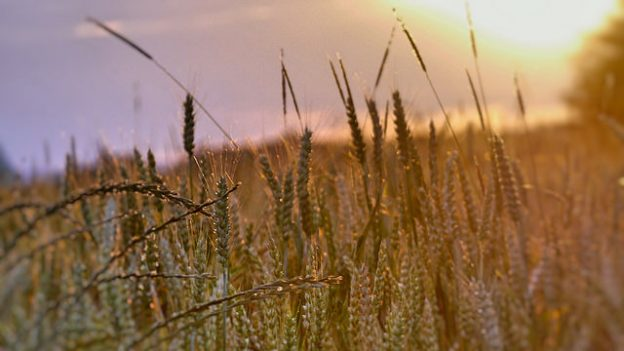Chair RISK – Project “The Common Agricultural Policy and climate shocks”

Pour mieux comprendre l’impact des chocs climatiques et l’implication des différents acteurs couvrant ce risqTo better understand the impact of climate shocks and the involvement of the different actors covering this riskue
↘ The Common Agricultural Policy is still the main Community budget. However, the functioning and objectives of the CAP have changed, moving from a product support and productivism logic to a producer support logic, taking into account social and environmental considerations. In view of the financial weight of the CAP, it is essential to know whether the aid is sufficiently targeted to respond to these climatic hazards.
Using detailed tax data per farmer and NASA climate data, the direct effects of the climate on farmers, whether it be water stress or relative drought, will be established. These shocks will of course be separated from other determinants of firm efficiency, such as productivity, size, product diversity and financial structure.
We will also try to isolate this shock from the multiple public subsidies and insurance indemnities, in the case where the farmer is effectively insured. This question seems to us all the more important as currently only a minority of French farmers are compensated.
↘ BETA is the leading research centre in economics and management in the Grand-Est region. It brings together researchers from all fields of economics, and is particularly well known in the field of risk management and the study of individual behaviour in the face of risk. It relies on a team of ten or so researchers recognised in the field, and on an experimental economics laboratory.
Samuel Ligonnière and his co-authors (Rémi Generoso, University of Lille, and Clément Nédoncelle, INRAE) are currently working on the effectiveness of current support policies for farmers. They are particularly interested in the role played by the Common Agricultural Policy (CAP) on the adaptive capacity of French farmers in a context of climate change and increased climate variability.
↘ The use of fine-grained data, both at the climate and firm level, will help answer various questions:
• How vulnerable are French farmers to climate shocks?
• How effective is the Common Agricultural Policy in ensuring the sustainability of agricultural enterprises?
• What reform seems necessary for the Common Agricultural Policy?

Become a sponsor and support this project!
In order to contribute and to count in these important fields, which will be source of major stakes in the future, the BETA laboratory of the University of Strasbourg wishes to increase the impact and the research opportunities of this research team.
By associating yourself with this project as a sponsor, we offer you the opportunity to:
- Benefit from prospective studies on the impacts of climate shocks on the agricultural sector, and from the resulting challenges
- Benefit from the recognition programme offered to the University of Strasbourg’s patrons.
Project leader:
Samuel LIGONNIERE, Lecturer | ligonniere@unistra.fr
Fondation Université de Strasbourg | fondation@unistra.fr
03 68 85 13 10
The objectives of this research project :
- To establish the vulnerability of French agriculture to climatic shocks, as well as the factors favouring their resilience (type of activity, size, degree of diversification of production, organic or not, existence of particular natural constraints, existence or not of insurance contracts, etc.).
- To measure the effectiveness of CAP aid in terms of the sustainability of French agricultural enterprises and their production and export capacity.
- To be a force of proposal for a possible reform of the CAP in the face of a potential excessive disparity in financial aid.
- To be a force of proposal for a possible reform of the CAP in the face of a potential excessive disparity in financial aid.
- To enable the analysis of the multiple consequences of these climatic shocks on a regional economy or on certain sectors of activity dependent on agricultural production.
What will your donation be used for?
- To fund a PhD student and three research interns.
- Provide access to the data (fiscal and spatial) needed for the studies.






